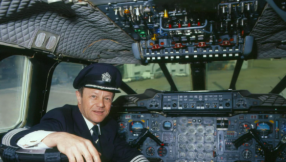WCC Draws Together Faith Groups to Address Fundamentalism, Religious Tolerance
|PIC1|"We affirm that humankind, made up of many peoples, nations, races, colours, cultures and religious traditions, is one human family. Therefore we reject all attempts to drive wedges between religious traditions by presenting them as mutually exclusive. We commit ourselves to lift up the teachings and practices in our religious traditions that nourish life and promote community," affirmed a statement of "common commitments" sent to religious communities in Geneva and the region.
The interreligious event, sponsored by the World Council of Churches and themed “My Neighbour’s Faith and Mine: Religious Identity – for Better or for Worse,” addressed issues on religious fundamentalism and violence through panel discussions, forums, colloquiums, cultural exhibitions and worship celebrations.
Speakers acknowledged that religious identity can serve as the fuel for global conflict, impacting both individuals and the larger society.
The Rev. Jean Claude Basset, a Swiss Protestant pastor and specialist on interreligious dialogue, said dialogue on faiths needed to adapt to the changing nature of faith. Faith, he said, could no longer be considered as an inherited or imposed set of values, but rather a question of individual conscience and personal experiences.
Meanwhile, Rabbi Marc Raphaël Guedj from Geneva said he believes different faiths can learn to live together in harmony if the adherents are able to move beyond ideologies.
|TOP|“There is a need to move from identity to spirituality. It is by deepening spiritual experience, and returning to the sources of faith, that a balanced relationship between particular identity and universality can be restored," Guedj proposed. "The deeper our religious experience, the more open we become. Mystics of all traditions have no problem with dialogue!"
The Rev. Dr. Samuel Kobia, the general secretary of the WCC, agreed that faith groups must address conflict together by looking beyond their differences.
"The increased awareness of religious plurality, the potential role of religion in peace-building, and the growing recognition of the place of religion in public life present immense challenges that require deeper understanding and inter-faith cooperation. That which we can do together, we should not do separately,” said Kobia.
According to a WCC press release, the program for the Nov. 12-14 meeting included an inter-faith celebration at Geneva's historic St Pierre's Cathedral that involved local leaders, scholars and other participants from the Baha'i, Buddhist, Christian, Hindu, Jewish and Muslim faiths. Highlights of the three-day event included an international colloquium under the heading "An end to tolerance?", and a youth forum which allowed over 100 young people from 19 countries to dialogue on experiences of belief, identity and plurality.
Elaine Spencer
Christian Today Correspondent













